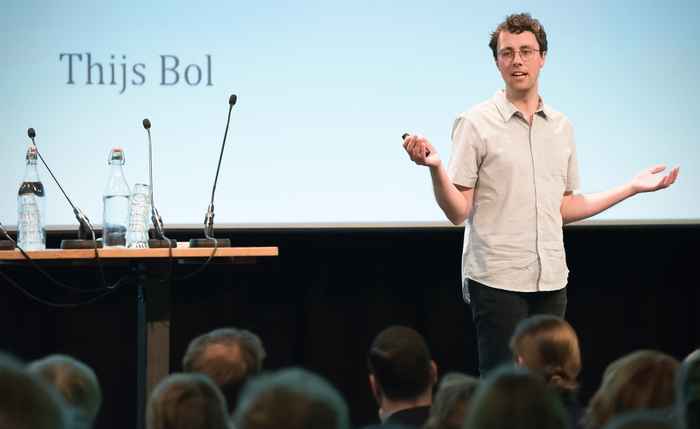What impact does the changing labour market have on specialists?
Research on AI in the spotlight
10 June 2021

Research on AI in the spotlight
Artificial Intelligence (AI) is more than just a set of technologies. AI will fundamentally affect citizens and transform societies, in both desirable and undesirable ways. The FMG Platform Citizens, Society and Artificial Intelligence (CiSAI) unites Social and Behavioural science researchers who analyse these transformations and the effects of AI on societal dynamics and on the lives of individual citizens. In the series ‘Research on AI in the spotlight’ we present some of our experts who study these themes.

How compatible is our education with the changing labour market, and what are the differences between people with broad vs specialist training? This is the central question that sociologist Thijs Bol will investigate with funding from the European Research Committee (ERC).
‘Some people are trained for one specific profession in vocational education, but what will happen to these people if this profession changes or even disappears altogether?’ Bol asks. ‘What about accountants and bank employees, for example, whose work is increasingly being taken over by automated systems, or car mechanics who have to adapt their knowledge and skills to service electric vehicles?’
Does specialist training make you vulnerable?
According to Bol, there is now a strong belief that overly specialised training makes people vulnerable when the labour market changes. But is this really the case? To find out, Bol and his team will be following a panel of people with various professions and education levels in six European countries (the Netherlands, England, Sweden, Germany, Switzerland and Poland) to chart their career development. ‘Where people end up right after their training is just a snapshot’, Bol explains. ‘How do their careers progress from there?’
Bol will link this panel data to an analysis of the labour market based on millions of job vacancies over the past 15 years. How has the demand for labour changed? What professions are emerging and disappearing, and what skills are required within professions?
The role of AI
Artificial Intelligence (AI) will also play a role in this research. On the one hand, AI has an impact on the labour market and is bringing about a great deal of change. ‘AI has already taken over certain work processes and professions, and if we look at how AI is developing, this trend will probably only accelerate from here. Soon, we might hardly need interpreters at all, for example’, Bol says. But AI will also be used to analyse the millions of job postings. ‘Through this research, I hope to boost the use of such computational methods – that is, analysing large sets of data with mathematical models – in the social sciences’, Bol says.
Useful for policy
The research results will also be relevant to policy, where those in the field are tackling the big question: how do we train the employees of the future? ‘It is entirely possible that it makes no difference to your job security whether you’ve been trained as a specialist or not’, Bol says. ‘We can never accurately predict which skills will be required in the future, but that might not be a bad thing. Nevertheless, policymakers are now focusing on this issue: they want people with specialist training to be more broadly employable.’
Bol is currently assembling the research team and they will start the study in September. The study will run until 2026.